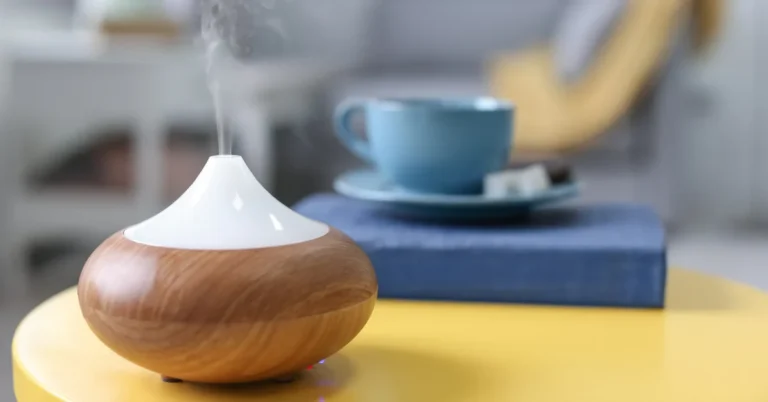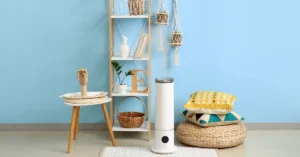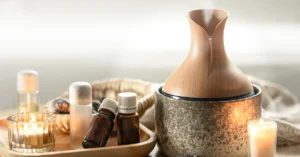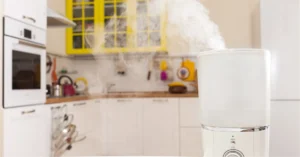Introduction
Dry air bothering you, but you already have a diffuser at home? You’re not alone in wondering whether that diffuser can double as a humidifier! It’s easy to confuse the two since both devices seem to improve the air in your home. But are they the same? Can a diffuser be used as a humidifier and solve your dry air problems?
We’re about to break down how each of these gadgets works, explain the differences, and help you decide whether your trusty diffuser can give your home the humidity boost it needs or if a humidifier is still your best bet.
How Does a Diffuser Work?
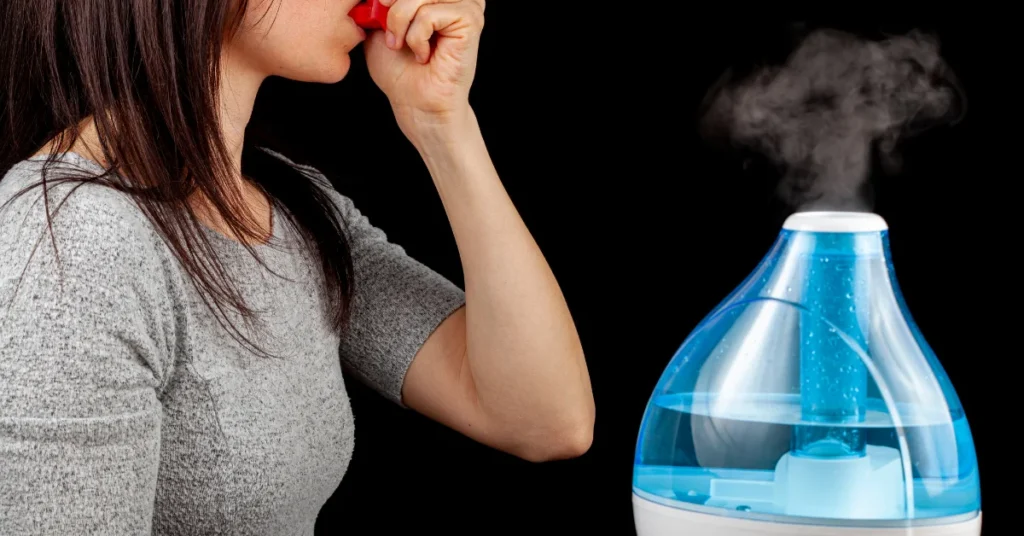
A diffuser’s main job is to release essential oils into the air, creating a pleasant scent and possibly delivering the therapeutic benefits of aromatherapy. But how exactly does it do this?
There are several types of diffusers, but most commonly, people use ultrasonic diffusers. These work by mixing water and essential oils, then using ultrasonic vibrations to break the liquid into tiny particles, which are released into the air as a fine mist. It sounds high-tech, but it’s surprisingly simple! The mist can make the air feel fresher, but it doesn’t dramatically change humidity levels.
Other types include evaporative diffusers, which rely on a fan to blow air through an essential oil-soaked pad, and heat diffusers, which use warmth to evaporate the oils into the air. Some people also use nebulizing diffusers, which don’t use water at all but instead create a concentrated mist of pure essential oil.
Benefits of Using a Diffuser
- Aromatherapy: People love diffusers for creating a calm, relaxing environment. Lavender for stress relief, eucalyptus for clearing congestion—essential oils can do wonders!
- Air Freshening: Tired of using chemical-laden sprays? A diffuser offers a natural way to make your home smell lovely.
- Mood Improvement: Certain oils like peppermint or citrus can boost your energy or focus, making diffusers a popular addition to home offices or relaxation spaces.
How Does a Humidifier Work?
While a diffuser focuses on spreading essential oils, a humidifier has a completely different job—it’s designed to add moisture to the air. Dry air, especially during winter or in arid climates, can lead to cracked skin, dry throat, irritated sinuses, and even worsened allergy symptoms. This is where humidifiers shine.
A humidifier works by releasing water vapor into the air, increasing the humidity levels in your home. There are a few different types of humidifiers, each with its own way of doing this:
- Cool Mist Humidifiers: These are the most popular and work by using a fan to evaporate water into the air as a cool mist.
- Warm Mist Humidifiers: These boil water before releasing it into the air as steam, which can be especially helpful for soothing congestion.
- Ultrasonic Humidifiers: Like ultrasonic diffusers, these use vibrations to create a fine mist of water vapor that adds moisture to the air.
- Evaporative Humidifiers: These use a wick filter to absorb water and then blow air through it, evaporating the water into the air.
Benefits of Using a Humidifier
- Relieves Dry Skin and Respiratory Issues: By adding moisture to the air, humidifiers can soothe dry skin, chapped lips, and irritated sinuses.
- Improves Sleep Quality: More humid air can prevent dry throats and stuffy noses, making it easier to sleep comfortably.
- Protects Your Home: Prevents cracking in wooden furniture and floors, which can occur in overly dry environments.
The Differences Between Diffusers and Humidifiers
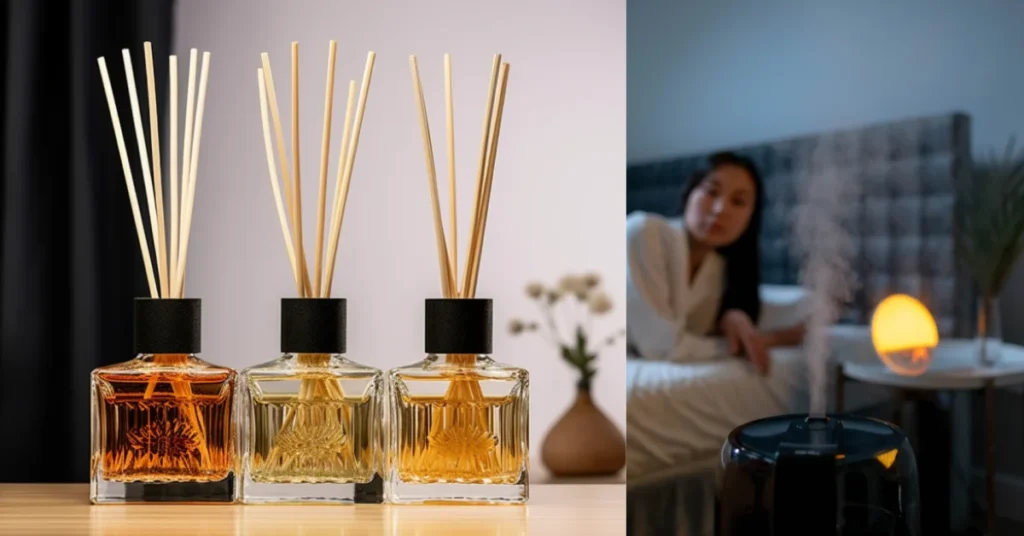
At first glance, diffusers and humidifiers may seem like they do similar things. They both release mist into the air, but their purposes are quite different. Let’s break down the key distinctions:
Primary Purpose
- Diffuser: Its main goal is to disperse essential oils, giving your home a pleasant aroma and potentially offering aromatherapy benefits.
- Humidifier: Its primary function is to add moisture to the air, improving humidity levels to alleviate dry air problems.
Air Humidity Levels
- Diffuser: While an ultrasonic diffuser adds a tiny bit of moisture to the air, it’s not nearly enough to make a real difference in humidity. It’s more for the scent and feel.
- Humidifier: Specifically designed to increase humidity, a humidifier can add significant moisture to your environment, making it ideal for dry climates or during winter.
Size of Coverage
- Diffuser: Most diffusers are best suited for small areas, like bedrooms or office spaces, and are not designed to affect large spaces.
- Humidifier: Humidifiers come in various sizes, and larger models can cover bigger areas, like living rooms, and maintain consistent humidity throughout the space.
Health Benefits Comparison
- Diffuser: Great for relaxation, mood improvement, and potentially relieving minor symptoms like headaches or stuffy noses with the right essential oils.
- Humidifier: Essential for respiratory health, relieving dry skin, preventing irritation, and helping with allergy symptoms caused by dry air.
Can a Diffuser Be Used as a Humidifier?
Now, the big question: Can a diffuser be used as a humidifier? In short, while diffusers do release a mist, they are not designed to increase humidity in any significant way.
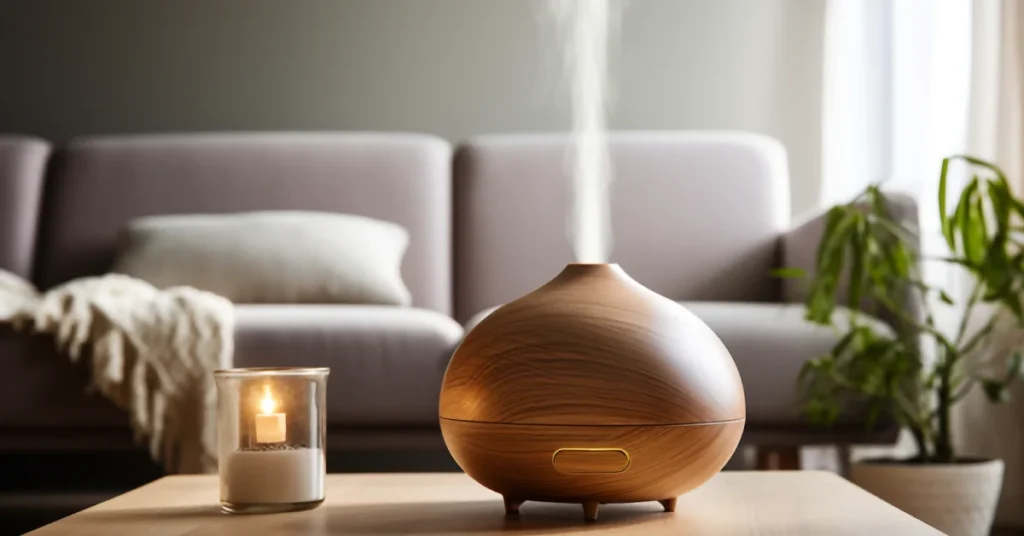
Breaking Down the Main Question
Diffusers, particularly ultrasonic ones, do emit water vapor as part of the mist, which might make the air feel a bit more humid. However, the amount of moisture a diffuser adds is minimal—far less than what a humidifier produces. So, if you’re dealing with very dry air and need to raise humidity levels, a diffuser won’t cut it.
Pros and Cons of Using a Diffuser for Humidity
- In small spaces, like a desk or bedside table, a diffuser might add a slight touch of moisture to the air.
- It offers the added bonus of aromatherapy, which can make the environment feel fresher and more calming.
When It Might Work
If you’re looking for a little extra moisture in a small, enclosed area (like your workspace or a small bedroom) and are more focused on the fragrance and relaxation benefits, a diffuser might be fine. But if you’re hoping for actual humidity control—especially in the winter months—a proper humidifier is still the way to go.
Does a Diffuser Humidify the Air Adequately?
While a diffuser does emit some moisture, its primary job is to disperse essential oils. The amount of water it releases is so minimal that it won’t make much of a dent in the air’s humidity levels—especially if you’re in a larger room or a particularly dry environment.
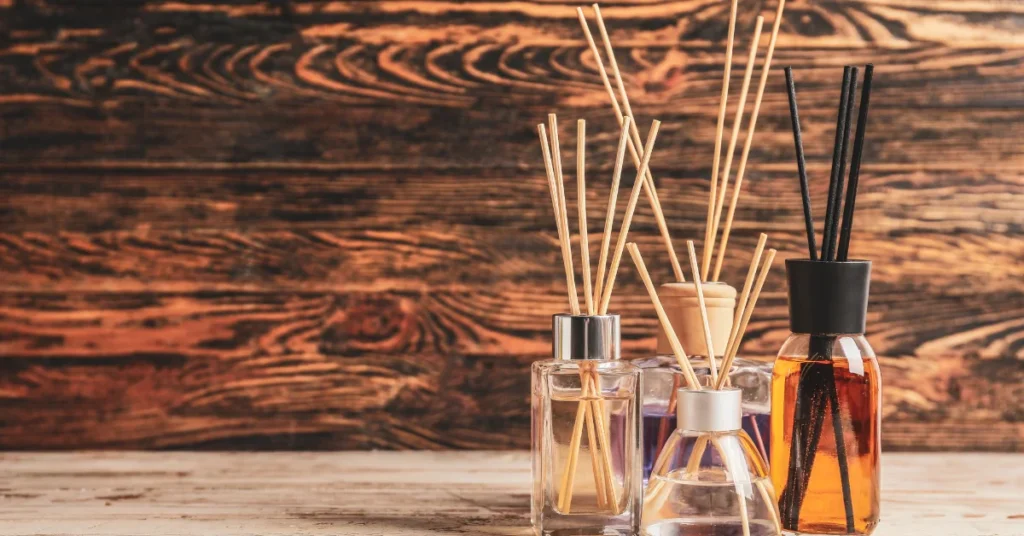
Moisture Output
Humidifiers are built to raise the humidity in a room by releasing a steady stream of water vapor. Diffusers, however, only mix a small amount of water with essential oils and disperse it in tiny bursts. Even if you’re running your diffuser for hours, it won’t add nearly enough moisture to make a noticeable difference in the air quality.
Scientific Backing
There’s little to no evidence suggesting that diffusers increase humidity in any meaningful way. Their misting function is simply not powerful enough to make a measurable impact on air moisture levels, especially compared to a dedicated humidifier.
So, while it may add a hint of moisture, a diffuser falls short when it comes to effectively humidifying a room.
When Should You Use a Humidifier Instead?
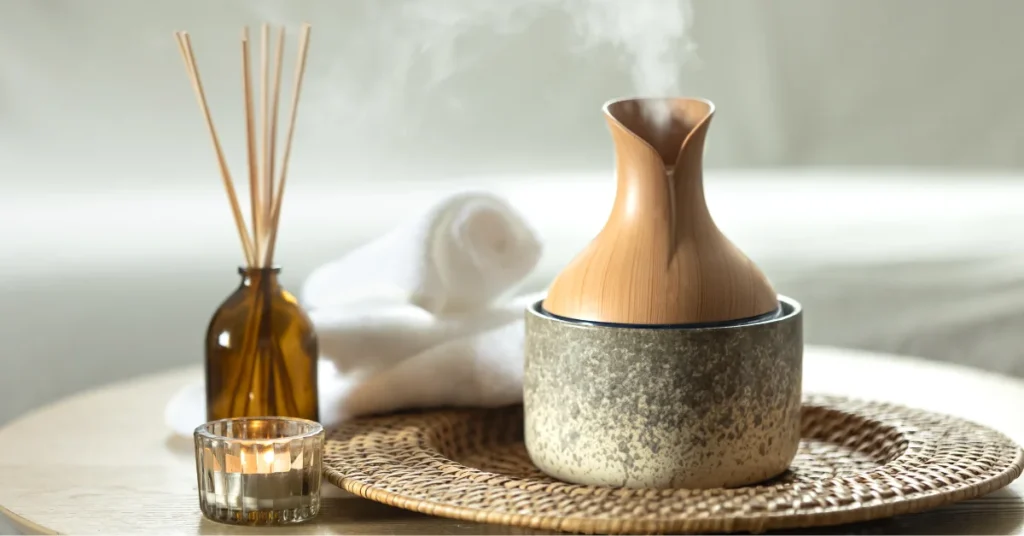
If you’re serious about adding moisture to the air and tackling problems caused by dryness, a humidifier is the better choice. Here are a few situations where a humidifier becomes essential:
Ideal Situations for a Humidifier
- Dry Climates: If you live in an arid region or experience extremely dry air during winter months, a humidifier will help maintain healthy humidity levels in your home.
- Winter Months: Heaters can suck the moisture right out of the air, leading to dry skin, itchy throats, and static electricity. A humidifier will prevent those problems by balancing the air moisture.
- Large Spaces: Diffusers are too small to cover large rooms, but humidifiers come in sizes designed to manage big areas, ensuring proper air quality throughout your home.
Health Considerations
- Respiratory Issues: If you or your family suffer from asthma, allergies, or frequent colds, dry air can exacerbate these conditions. A humidifier keeps the air moist, reducing irritation in the nose, throat, and lungs.
- Skin and Hair Health: If you notice your skin cracking or becoming overly dry, or your hair feeling brittle, low humidity could be the culprit. A humidifier can bring relief.
In short, a humidifier is your go-to device when the goal is to add substantial moisture to the air, especially in larger rooms or when health concerns are at play.
Are Diffusers and Humidifiers the Same?
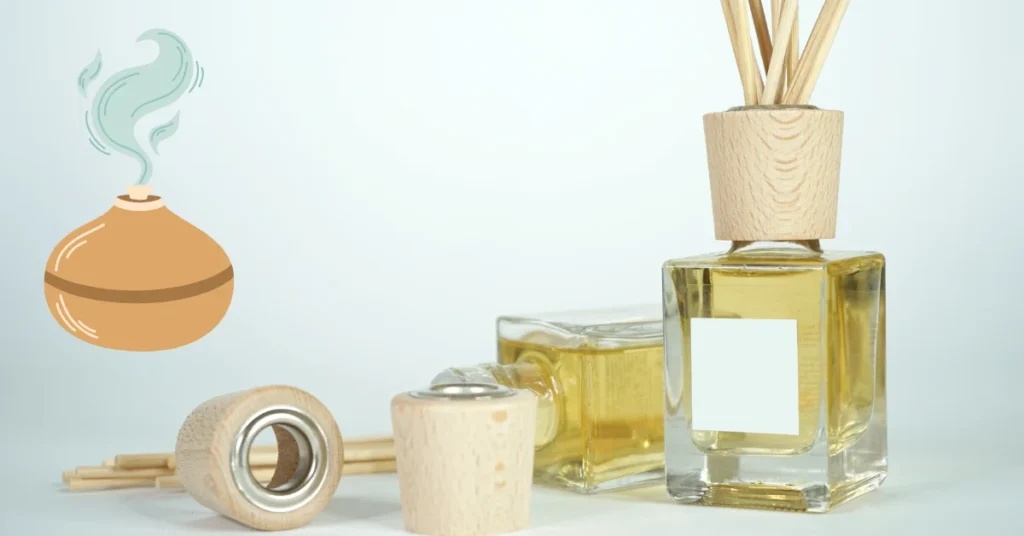
This is a common question that trips up many people. On the surface, diffusers and humidifiers may look similar—both release mist into the air—but they serve very different purposes. Let’s clear up the confusion once and for all.
Clearing Up the Confusion
- Diffusers: These are primarily for aromatherapy. They spread essential oils into the air, creating a pleasant scent and a calming environment. The amount of water they use is small, and their impact on air humidity is minimal at best.
- Humidifiers: These are designed specifically to add moisture to the air. They don’t disperse any essential oils (unless they are dual-function models). Their goal is to raise the humidity level in a room, which can have health benefits, especially in dry environments.
Summary of Differences
- Purpose: Diffusers focus on aromatherapy, while humidifiers are all about air moisture.
- Size & Coverage: Diffusers are small, covering smaller spaces with minimal mist, while humidifiers come in various sizes, often capable of humidifying large rooms.
- Health Benefits: Humidifiers help prevent dry skin, respiratory issues, and discomfort caused by dry air. Diffusers provide mental and emotional benefits through aromatherapy but do little for actual air quality.
The Best of Both Worlds: Can You Use a Diffuser and Humidifier Together?
If you’re wondering whether you need to choose between a diffuser and a humidifier, the good news is—you don’t have to! In fact, using both together can give you the best of both worlds: improved air quality and the calming benefits of aromatherapy.
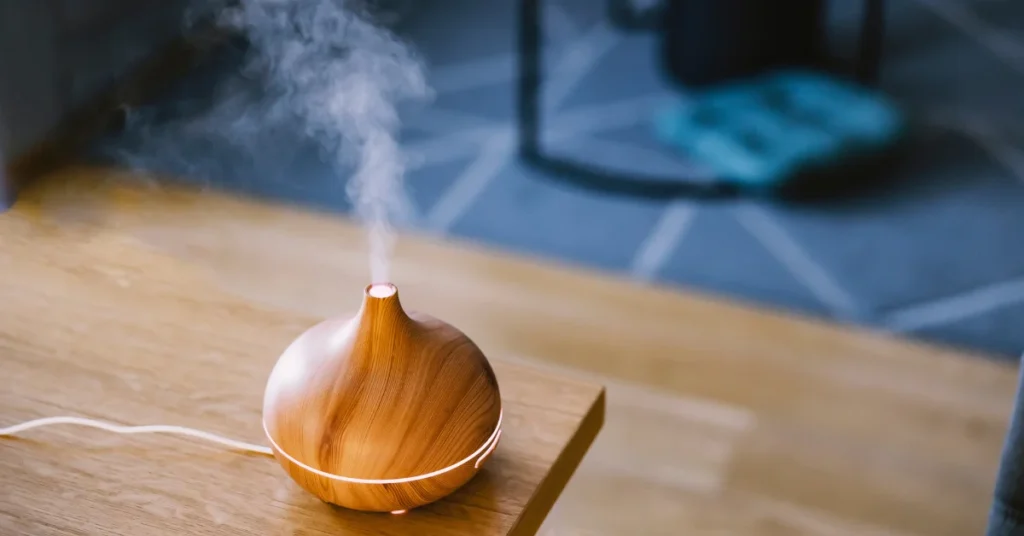
Combining Both Devices
- Moisture + Scent: A humidifier will add much-needed moisture to the air, while the diffuser spreads your favorite essential oils, making the room smell amazing.
- Enhanced Comfort: If you’re dealing with dry air, especially in larger spaces, running a humidifier will tackle the air moisture problem, while the diffuser can still help relax your mind and body with soothing aromas.
Tips for Optimal Use
- Placement: Keep the devices in different areas of the room so that both the mist and scent are evenly distributed.
- Timing: You don’t need to run both constantly. Use the humidifier for a few hours to raise humidity levels, and then switch on the diffuser when you want to unwind.
- Device Care: Remember to clean both devices regularly, as stagnant water can lead to mold or bacteria buildup, especially in humidifiers.
Combining a diffuser and a humidifier is a perfect match for those looking to improve both air quality and overall well-being in their living space.
Conclusion
So, can a diffuser be used as a humidifier? While a diffuser does release a bit of moisture into the air, it’s not designed to significantly increase humidity levels like a humidifier does. If your main goal is to combat dry air and improve moisture levels in your home, a humidifier is the better choice. On the other hand, if you’re looking for aromatherapy benefits and to create a calming environment, a diffuser is the perfect tool.
In some cases, combining both devices can give you the best results—improved humidity and the soothing effects of essential oils. Just remember, if your air is uncomfortably dry, a diffuser alone won’t be enough to tackle the issue.
